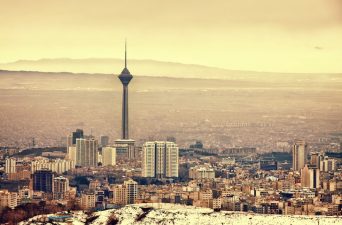 A new initiative could put an end to this in Cairo!
A new initiative could put an end to this in Cairo!
Nine million used rubber tires are dumped in Cairo every year, according to the Community Times. Egypt’s capital is in many ways defined by its pollution. Not only are the skies smoggy (well ahead of black cloud season), but waste is a veritable plague. Even the wealthier neighborhoods such as Maadi can’t escape the food scraps, disposable containers, and plastic strewn absolutely everywhere. But nothing here stinks more than the country’s ubiquitous used rubber tires.
Cleaning up shop
Although environmental issues took a back seat before the revolution that brought Hosni Mubarak to his knees, the post-revolution era has ushered in a new sense of urgency. Not only do residents feel empowered to demand socio-political rights, but they also feel empowered to restore eco-magic to this once beautiful country.
The El Nour Society in Shoubra El Khaima has presented a plan to the Ministry for Environmental Affairs to recycle tires and reduce their harmful impact. Youssef Yasser told the paper that in order to appropriately rid Egypt of this toxic hazard, it will be necessary to build 64 rubber recycling units that will each produce 2.5 to 3 tons every day.
Every plant could also employ up to 40 unskilled workers, boosting employment (a little bit.) But the ministry is slow to respond. In part, this is because the technology required to recycle tires is expensive.
Money money money
One machine from China that costs $600,000 separates cotton fibers from rubber. The cotton – another Egyptian industry that deserves a slight makeover – can be recycled in upholstery, while the recycled rubber can be used to make rubber accoutrements or tiles for kiddie playhouses. A German company has offered the same technology for nearly $5 million!
After Mubarak funneled the country’s resources into his own pockets, or those of his crooked cronies, Egypt is now faced with economic meltdown. Saudi Arabia has offered $4 billion in loans to pull the country back off its knees, and numerous campaigns are being hatched to bring tourists back, but the folks hanging on to wobbly reins aren’t likely to rush into any new wild schemes just yet.
In this context, tire recycling won’t take center stage even though they present acute danger to human and environmental health. Many people burn the used tires, sending toxic fumes into the atmosphere. And because they capture heat and humidity, tires create the perfect breeding ground for mosquitoes, which lay up to four million eggs on each tire, and rats.
Zaabadoo!
The El Nour Society won’t go down without a fight. Chances are, Abu Zaabal will get their recycling plant, along with an entire infrastructure that can manage the new products generated therein. But mobilizing an entire sweep of such centers will take slightly more time.
More on waste and recycling in the Middle East:
The UAE’s Plastic Bag Story Isn’t Eco-Happy Yet
Mekano Designs Renewable Energy Skyscraper for Garbage City
Lebanese Man Turns Garbage Into Beautiful Glasses




is there a good chance for the tire recycle business in Egypt
what is the capital money need.